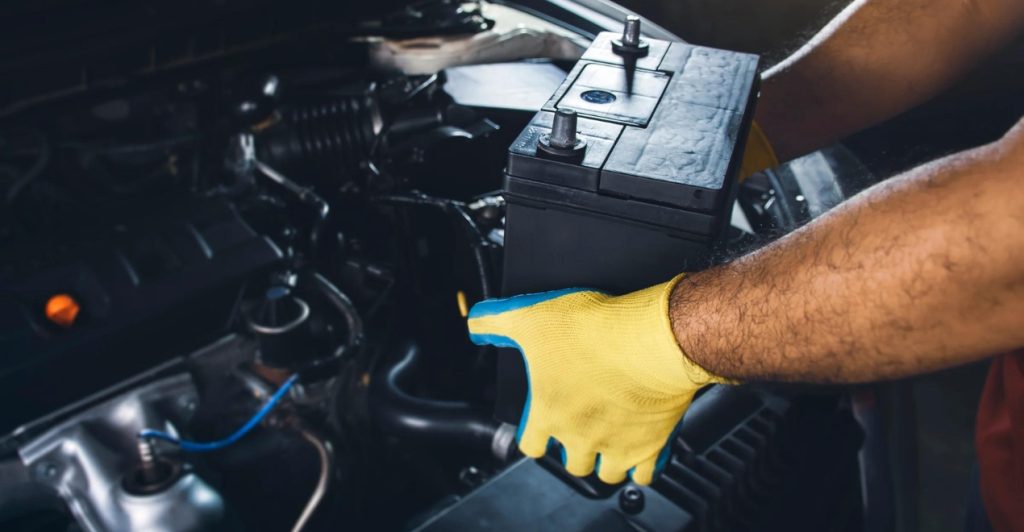Regular Car Battery Maintenance in extreme weather includes checking voltage, cleaning terminals, ensuring proper insulation, and keeping the battery fully charged to prevent unexpected failures and extend its lifespan.
A car battery is one of the most critical components of a vehicle, supplying power to start the engine and operate electrical systems. However, extreme weather conditions—whether hot summers or freezing winters—can significantly impact a battery’s performance and lifespan. Car Battery Maintenance becomes essential in ensuring the smooth functioning of your vehicle under harsh conditions. Ignoring battery upkeep can lead to unexpected breakdowns and expensive replacements. In this article, we will explore the best maintenance tips for preserving your car battery in extreme temperatures.
Understanding How Extreme Weather Affects Car Batteries
Temperature fluctuations affect chemical reactions within a battery, influencing its overall performance. Whether in scorching heat or icy cold, your battery undergoes stress that may shorten its lifespan.
- Hot Weather Issues: High temperatures can cause battery fluid to evaporate, leading to reduced capacity and internal damage.
- Cold Weather Issues: Freezing temperatures slow down the chemical reactions inside the battery, making it harder to generate power for starting the engine.
- Seasonal Changes: Transitioning between summer and winter without proper maintenance can accelerate battery wear and tear.
Understanding these effects is the first step toward effective Car Battery Maintenance, ensuring your vehicle runs smoothly throughout the year.
How to Maintain a Car Battery in Hot Weather
Summer heat can be particularly harsh on car batteries. The increased temperature leads to fluid evaporation, plate corrosion, and ultimately, battery failure. Here are essential tips to protect your battery in hot conditions:
Keep the Battery Cool
Parking your car in a shaded area or a garage can prevent excessive heating. High temperatures accelerate battery wear, so keeping it cool will extend its lifespan.
Check Battery Fluid Levels
Many car batteries are maintenance-free, but if yours allows access, check the fluid levels. Low electrolyte levels due to evaporation can reduce battery efficiency.
Clean Battery Terminals
Heat increases corrosion, leading to poor connections. Clean the terminals regularly using a mixture of baking soda and water to remove any buildup.
Avoid Short Trips
Frequent short trips prevent the battery from fully charging. If possible, drive for at least 15-20 minutes to allow the alternator to replenish the charge.
Use a Battery Insulation Kit
Heat shields or insulation kits can help regulate battery temperature, reducing excessive heat exposure.
By following these steps, you can significantly improve your battery’s durability in high temperatures and ensure proper Car Battery Maintenance.
How to Maintain a Car Battery in Cold Weather
Cold weather is a major challenge for car batteries as it slows down their chemical processes, making it difficult to start the engine. Here are some useful tips to maintain battery performance in freezing temperatures:
Keep the Battery Fully Charged
A fully charged battery is less likely to freeze. If you don’t drive regularly, consider using a trickle charger to keep the battery at an optimal charge level.
Test Battery Voltage Regularly
Cold weather weakens battery power, so checking voltage levels ensures you detect issues early. A healthy battery should maintain around 12.6 volts when fully charged.
Park Indoors or Use a Battery Warmer
If possible, park in a garage to keep the battery from exposure to extreme cold. A battery warmer can also help maintain optimal temperature levels.
Avoid Using Unnecessary Electrical Components
In winter, energy demand increases with heating and lighting. Limit the use of these features when starting your car to reduce the load on the battery.
Replace an Old Battery Before Winter
If your battery is older than three years, consider replacing it before winter arrives. Older batteries struggle more in low temperatures and can fail unexpectedly.
Applying these Car Battery Maintenance practices will help prevent cold-weather-related battery failures and keep your vehicle running reliably.
Common Signs of a Failing Car Battery
Recognising early warning signs of a weak battery can save you from unexpected breakdowns. Here are some indicators:
- Slow Engine Crank: If your engine takes longer than usual to start, your battery may be losing power.
- Dim Lights and Electrical Issues: Weak headlights or malfunctioning electrical systems indicate insufficient power supply.
- Battery Warning Light: If the battery indicator illuminates on your dashboard, get your battery checked immediately.
- Swollen Battery Case: Heat exposure can cause a battery case to swell, indicating internal damage.
- Frequent Jump Starts: Needing to jump-start your car frequently suggests a failing battery.
Addressing these symptoms early can help you avoid battery-related inconveniences and ensure proper Car Battery Maintenance.
Essential Tools for Car Battery Maintenance
Having the right tools can make battery maintenance easier and more effective. Here’s a table of essential tools and their functions:
| Tool | Function |
|---|---|
| Battery Charger | Keeps the battery charged during periods of inactivity. |
| Multimeter | Measures battery voltage to check its health. |
| Battery Terminal Cleaner | Removes corrosion and ensures a good connection. |
| Insulation Kit | Protects the battery from extreme temperatures. |
| Jumper Cables | Provides emergency assistance for a dead battery. |
How to Extend Your Car Battery’s Lifespan
Taking proactive steps can maximise your battery’s longevity. Here are some additional tips:
- Drive your car regularly to keep the battery charged.
- Turn off headlights and electronics when the engine is off.
- Secure the battery properly to prevent vibrations that may cause internal damage.
- Get regular professional check-ups to ensure optimal battery performance.
Conclusion
Proper Car Battery Maintenance is essential for ensuring your vehicle’s reliability in extreme weather conditions. Whether dealing with high summer temperatures or freezing winter days, following these maintenance tips can help extend your battery’s lifespan and prevent unexpected failures. By staying proactive and performing regular checks, you can ensure your car battery remains in top condition year-round.

